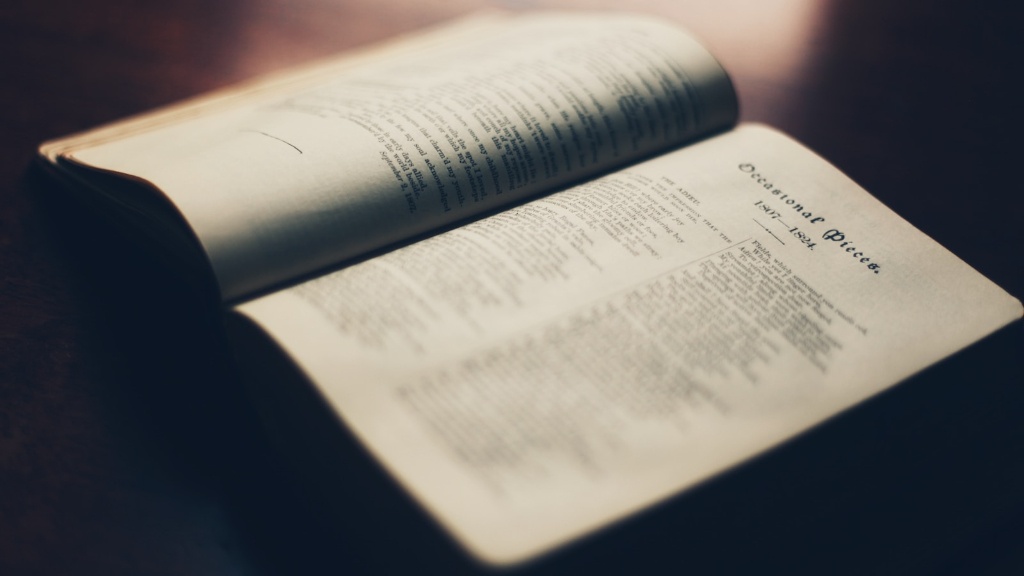Poetry is one of the oldest forms of literary expression, and has been used as a medium for expressing personal feelings, opinions and beliefs since ancient times. It is often used by writers to evoke strong emotions, convey ideas and express themselves in ways that go beyond the limitations of everyday language. The aim of poetry is to create vivid mental pictures, to express ideas in creative ways, and to capture the essence of the moment. It is often used as a way to explore the depths of human experience, to reflect on the complexities of everyday life, and to give voice to untold emotions and feelings.
One of the primary aims of poetry is to communicate a powerful, personal message. It is an art form that speaks directly to the reader, allowing them to connect with the writer on an intimate and profound level. Through its carefully crafted words and images, poetry can share powerful insights into the human condition, revealing the beauty and complexity of life. It allows the writer to express their inner thoughts and emotions in a way that is free from judgement, allowing the reader to experience the writer’s unique perspective and ideas.
Poetry is also commonly used to celebrate and explore the beauty of nature. Poets use their words to capture the delicate details of the natural world, the wonders of truth, and the power of mystery. Through their vivid descriptions and imaginative imagery, poets are able to create compelling pictures of the world around us, inspiring us to appreciate the beauty of life and the many wonders of the universe.
In addition to its use in literature, poetry is also often used as a tool of self-expression. Many writers use poetry to explore difficult emotions and to come to terms with their personal experiences. By expressing these thoughts and feelings through the power of the written word, poets are able to bring healing and comfort to readers who can relate to the feelings expressed in their poems.
Finally, poetry is also used to promote change and to inspire social action. Writers use their words to help raise awareness about important causes, to confront injustice, and to encourage people to think critically about the world in which we live. Through their powerful messages, poets have played an important role in inspiring people to reach for higher goals and to work towards creating a better world.
Exploring the Creative Power of Poetry
In addition to communicating powerful messages, poets also use their art form to explore and celebrate human creativity. Writing poetry allows writers to push the boundaries of traditional language and to tap into more creative forms of expression. With its use of metaphors, symbolism, and allusions, poetry allows writers to explore deeper levels of meaning and to convey abstract concepts in unique ways.
Many poets also use poetry as a form of protest and revolt, rejecting traditional norms and conventions with their words. By exploring and challenging systems of oppression and the status quo, poets have been able to bring attention to important topics and to inspire change in their readers. With its power to question and criticize, poetry can be an effective tool for calling out social and political issues and for bringing about meaningful reform.
Moreover, poets often use their art form as a way to explore social and cultural issues. Through their words, they can bring attention to issues of diversity, racism, and injustice and can inspire readers to think more deeply about the world they live in. By addressing these topics head-on, and by exploring the consequences of inequality and privilege, poetry can help raise public awareness and can generate debate and discussion around challenging topics.
The Impact of Poetry on Identity
Many writers also use poetry to explore their own unique identity and to explore their personal experiences and perspectives. For example, many writers have used poetry as a tool for expressing their emotions surrounding experiences of oppression, marginalization, and discrimination. Through their words, these writers are able to explore these difficult topics in a cathartic way, allowing them to reclaim their identities and to challenge the negative stereotypes associated with their communities and backgrounds.
Other writers use their poetry to explore more general aspects of their identities, such as their personal aspirations, goals, and dreams. By expressing these thoughts and feelings, these writers are able to find a sense of connection and belonging, helping them to make sense of their lives and to discover their place in the world.
Finally, poetry is also used by many writers as a form of personal expression, allowing them to express their innermost thoughts and feelings without judgement or criticism. By creating vivid mental pictures and expressing ideas in creative ways, poets can give readers a glimpse into their most intimate reflections and experiences. In this way, poetry can be an effective tool for building an understanding of another person, helping readers to gain a deeper understanding of their unique identity.
Confronting and Confronting Complex Emotions
Poetry can also be used as a way to confront and explore complex, difficult emotions. By expressing these feelings in creative ways, poets can give readers the opportunity to reflect on and come to terms with difficult emotions and experiences, such as grief, loss, heartbreak, and betrayal. In this way, poetry can help readers to process and to find meaning in difficult and painful experiences.
Moreover, by expressing these feelings through the power of the written word, poets can provide solace and comfort to readers who can relate to the emotions expressed in their work. Poetry can help readers to realize that they are not alone in their struggles and can help them to find the strength and courage to confront difficult topics and to move forward in life.
Finally, writers also use poetry as a way to celebrate the beauty and the joy of life. Through their words, writers can express their innermost dreams and hopes as well as their appreciation for the beauty and magic of the world. By conveying these powerful emotions, writers can not only touch their readers’ hearts but can also inspire them to find beauty and happiness in their own lives.
Celebrating the Power of Poetry
Ultimately, poetry is a powerful and multi-faceted form of literary expression. By using their words to evoke strong emotions, to express difficult concepts and to share important messages, poets are able to create works of lasting beauty and significance. In this way, poetry can be an invaluable tool for connecting people and empowering them to think more deeply, critically and compassionately about the world in which they live.
Poetry also has an important role to play in inspiring people to take action and to fight for progress. By calling out injustice, challenging inequality, and raising awareness about important causes, poets have been at the forefront of social reform. Through their powerful words, poets have been able to touch hearts, open minds, and empower people to create meaningful and lasting change.
At its core, poetry is an art form with the power to transform and to inspire. Its unique ability to evoke strong emotions, convey ideas and express complex concepts allows writers to reach out to their readers on a more intimate level. With its power to educate, to challenge, to comfort, and to heal, poetry is certainly an art form that should be celebrated.
The Role of Poetry in Intercultural Exchange
In addition to its power to express personal feelings and beliefs, poetry can also be used as a tool for intercultural exchange. By using their works to bridge the gaps between cultures, poets have been able to create meaningful connections with people from all walks of life. Through their words, they have been able to bridge language barriers, to share experiences, and to teach one another important lessons.
This type of intercultural exchange can be especially valuable in times of conflict and misunderstanding. By creating a shared language, poets can help bring people together in meaningful ways, enabling them to relate to one another in sincere and respectful ways. As such, poetry can be an invaluable tool for fostering understanding and for building peaceful relationships between cultures.
In this way, poetry can be a powerful tool for communication and for creating a more inclusive and tolerant world. By allowing us to experience the unique perspectives and beliefs of one another, poetry can help us to accept and respect our differences. In this way, poetry can play an important role in paving the way for a more peaceful and understanding world.
The Emotional Impact of Poetry
Finally, poetry can also be used to bring comfort and healing. By expressing difficult feelings through the power of the written word, poets can offer comfort and support to their readers, who may feel understood and validated by the writing. In this way, poetry can be a tool for calming and reconciling complex and difficult emotions.
Poetry can also be used to celebrate beautiful moments and memories. Through their words, poets can bring forth vivid and powerful memories, inspiring readers to think back and cherish the moments that have touched their lives. In this way, poetry can be an effective tool for evoking nostalgia, for lifting spirits, and for helping readers to slow down, take a breath and reconnect with their innermost thoughts and feelings.
With its power to bring healing, comfort and peace, poetry is certainly a powerful tool for helping us to make sense of the complex and sometimes overwhelming emotions of life. By expressing our innermost thoughts and feelings in creative ways, we can truly appreciate the beauty, imperfections and wonders of life.





